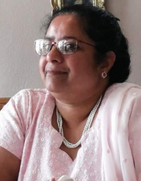World Health Day: Healthy beginnings, hopeful future
 Healthy beginnings, hopeful future: The transformative impact of Women Family Physicians on Maternal and Child health and their survival
Healthy beginnings, hopeful future: The transformative impact of Women Family Physicians on Maternal and Child health and their survival
Introduction
The health and well-being of mothers and children are inextricably linked, influencing not only individual lives, but also the prosperity of families, communities, and societies.
Women family physicians bring a unique perspective to health care, one that emphasizes empathy, communication, and holistic care. This approach fosters strong, trusting relationships between the doctor and the patient, leading to better health outcomes and improved quality of life.
Women family physicians play a vital role in shaping maternal and child health outcomes by providing comprehensive, patient-centred care that addresses the unique needs of this population. They are often at the forefront of healthcare advocacy, promoting health equity, social justice, and community engagement. They empower patients through education, support, and access to resources—building stronger and more resilient communities.
Impact on maternal health
- Improved prenatal care: Individualised care during pregnancy, addressing physical, emotional and social needs. Includes regular check-ups, nutritional advice, and education to support safe and healthy pregnancies.
- Enhanced postpartum support: Comprehensive care after birth, including check-ups, breastfeeding support, prevention strategies, and newborn care.
- Early detection of cancer: Screening through Pap smears and breast examinations during prenatal and postpartum visits.
- Reducing transmission of HIV and STIs: Conducting tests such as HIV and RPR during pregnancy, providing treatment and guidance to prevent transmission to the child.
- Mental health and social support: Access to mental health services and advice on family and community support systems.
Impact on child health
- Increased immunisation rates: Timely vaccinations through well-baby clinics to protect against preventable diseases.
- Better nutrition and growth: Personalised nutrition guidance and growth monitoring in line with WHO guidelines.
- Early detection and intervention: Identifying developmental delays and health issues early to ensure timely care.
Impact on survival of mother and child
- Reduced maternal mortality: Timely access to quality care and education reduces risks, especially in underserved communities.
- Reduced infant and child mortality: Expertise in newborn care and parenting guidance helps more children survive to age five.
- Improved child survival: Treating common illnesses and referring complex cases, while promoting healthy habits.
- Improving health outcomes: A holistic, family-oriented approach fosters better well-being for mothers and children.
General contributions
- Reducing health disparities: Providing care in underserved areas and addressing barriers to access.
- Global health initiatives: Supporting the Sustainable Development Goals through improved maternal and child care.
- Innovative solutions: Embracing technology, community-based initiatives, and partnerships to improve care delivery.
Conclusion
Women family physicians are instrumental in shaping healthier beginnings and more hopeful futures for mothers and children. They provide essential care, support, and advocacy, guided by empathy and community involvement. Their contributions are vital to achieving better health outcomes and building a more equitable healthcare system.
As we mark World Health Day, let’s celebrate their work and renew our commitment to a healthier future for all mothers and children.

Dr Elizabeth Reji
Chair, WONCA Working Party on Women and Family Medicine